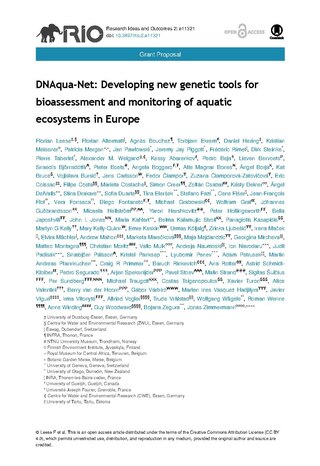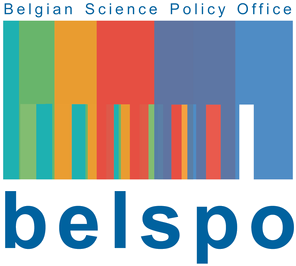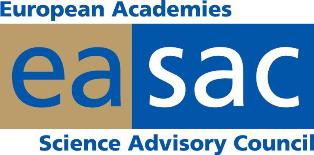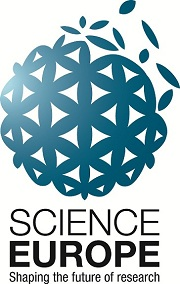
Science policy is concerned with the allocation of resources for the conduct of science towards the goal of best serving the public interest. Topics include the funding of science, the careers of scientists, and the translation of scientific discoveries into technological innovation to promote commercial product development, competitiveness, economic growth and economic development. Science policy focuses on knowledge production and role of knowledge networks, collaborations, and the complex distributions of expertise, equipment, and know-how. Understanding the processes and organizational context of generating novel and innovative science and engineering ideas is a core concern of science policy. Science policy topics include weapons development, health care and environmental monitoring.
A national academy is an organizational body, usually operating with state financial support and approval, that co-ordinates scholarly research activities and standards for academic disciplines, and serve as public policy advisors, research institutes, think tanks, and public administration consultants for governments or on issues of public importance, most frequently in the sciences but also in the humanities. Typically the country's learned societies in individual disciplines will liaise with or be coordinated by the national academy. National academies play an important organisational role in academic exchanges and collaborations between countries.

The European Science Foundation (ESF) is an association of 11 member organizations devoted to scientific research in 8 European countries. ESF is an independent, non-governmental, non-profit organization that promotes science in Europe. It was established in 1974 and its offices are located in Strasbourg, France (headquarters).

A grant is a financial award given by a government entity, foundation, corporation, or other organization to an individual or organization for a specific purpose. Unlike loans, grants do not need to be repaid, making them an attractive source of funding for various activities, such as research, education, public service projects, and business ventures. Examples include student grants, research grants, the Sovereign Grant paid by the UK Treasury to the monarch, and some European Regional Development Fund payments in the European Union.
The International Social Science Council (ISSC) was an international non-governmental organization promoting the social sciences, including the economic and behavioural sciences. Founded in 1952, the organization was based out of UNESCO headquarters in Paris, France.

The Academia Europaea is a pan-European Academy of Humanities, Letters, Law, and Sciences. The Academia was founded in 1988 as a functioning Europe-wide Academy that encompasses all fields of scholarly inquiry. It acts as co-ordinator of European interests in national research agencies.
The National Fund for Scientific Research (NFSR) was once a government institution in Belgium for supporting scientific research until it was split into two separate organizations:
The Flemish Council for Science and Innovation, previously known as the Flemish Council for Science Policy is the advisory body of the Flemish Government and the Flemish Parliament for science and technology policy. The VRWB provides advice concerning science and technology policy on its own initiative or on request. It provides recommendations, conducts investigations and provides its opinion on science and technology for Flanders. Dirk Boogmans is the Chairman of the Flemish Council for Science and Innovation. In 2016, it was abolished and reformed as the Flemish Advisory Council for Innovation and Entrepreneurialism.
VA is a Sweden-based non-profit association focusing on citizen science, responsible research and innovation, and science communication to the Swedish and European public. Its projects include: web games, books, and festivals for public engagement; studies and surveys to measure public scientific knowledge and engagement; and national and international research policy advocacy.

The European Cooperation in Science and Technology is running an EU-funded programme which enables researchers and innovators to set-up their own research networks in a wide range of scientific topics, called COST Actions. While COST does not fund research activities as such, it provides funding for scientific collaboration in the form of conferences, meetings, training schools and scientific exchanges.

The Federal Public Planning Service Science Policy or Belgian Science Policy Office, Federal Science Policy, known by the acronym BELSPO, is the federal government body responsible for research policy in Belgium. It designs and implements research programmes and networks and manages the participation of Belgium in European and international organisations. BELSPO supervises Belgian federal scientific organisations.
Science and technology in Brussels, the central region of Belgium (Europe), is well developed with the presence of several universities and research institutes.

All European Academies (ALLEA) is the European Federation of Academies of Sciences and Humanities. It was founded in 1994, and brings together more than 50 Academies of Sciences and Learned Societies from over 40 member countries of the Council of Europe. Since May 2018, the President of ALLEA is Antonio Loprieno. ALLEA is financed by annual dues from its member academies and remains fully independent from political, religious, commercial or ideological interests. The ALLEA secretariat is based on the premises of the Berlin-Brandenburg Academy of Sciences and Humanities in Berlin.
Science of science policy (SoSP) is an emerging interdisciplinary research area that seeks to develop theoretical and empirical models of the scientific enterprise. This scientific basis can be used to help government, and society in general, make better R&D management decisions by establishing a scientifically rigorous, quantitative basis from which policy makers and researchers may assess the impacts of the nation's scientific and engineering enterprise, improve their understanding of its dynamics, and assess the likely outcomes. Examples of research in the science of science policy include models to understand the production of science, qualitative, quantitative and computational methods to estimate the impact of science, and processes for choosing from alternative science portfolios.

The World Resources Forum (WRF) is a non-profit organisation for sharing knowledge about the economic, political, social and environmental implications of global resource use. WRF promotes resource productivity among researchers, policymakers, business, NGOs and the public. In addition to organizing international and regional conferences, the WRF Secretariat coordinates multistakeholder dialogue projects, amongst others the Sustainable Recycling Initiative (SRI) as well as the H2020 projects Towards a World Forum on Raw Materials (FORAM), and CEWASTE. The WRF contributes to other EC-projects and projects with the German development organisation GiZ, UNEP and UNIDO.
The acronyms ELSI and ELSA refer to research activities that anticipate and address ethical, legal and social implications (ELSI) or aspects (ELSA) of emerging sciences, notably genomics and nanotechnology. ELSI was conceived in 1988 when James Watson, at the press conference announcing his appointment as director of the Human Genome Project (HGP), suddenly and somewhat unexpectedly declared that the ethical and social implications of genomics warranted a special effort and should be directly funded by the National Institutes of Health.

The Research Foundation – Flanders is a Belgian public research council, based in Brussels. The Flemish research council aims to sponsor ground-breaking research and innovation. Much of this work involves supporting researchers and undertakings in association with the universities and institutes of Flanders, including Ghent University, University of Leuven, University of Antwerp and Free University of Brussels, among others.
Plan S is an initiative for open-access science publishing launched in 2018 by "cOAlition S", a consortium of national research agencies and funders from twelve European countries. The plan requires scientists and researchers who benefit from state-funded research organisations and institutions to publish their work in open repositories or in journals that are available to all by 2021. The "S" stands for "shock".
AcademiaNet is an international database containing profiles of women scientists. It is a non-profit project with the goal to raise the share of women in leadership positions in academia. AcademiaNet was initiated in 2010 in Germany by the Robert Bosch Stiftung and the publishing house "Spektrum der Wissenschaft". The Swiss National Science Foundation assumed responsibility of the platform in 2020.

The European Academies' Science Advisory Council (EASAC) is a regional association of National Academies of science. Its members are 25 National Science Academies of the Member States of the European Union (EU), and the National Science Academies of Norway, Switzerland and the UK. Malta and Luxembourg do not have National Academies of Science. A pan-European Academy (Academia Europaea) and a network of all Academies from across the continent of Europe (ALLEA) also have membership. EASAC was founded in June 2001 and was headquartered at the German National Academy of Sciences Leopoldina in Halle (Saale) until 31 December 2022.










